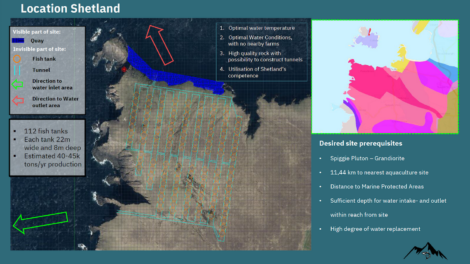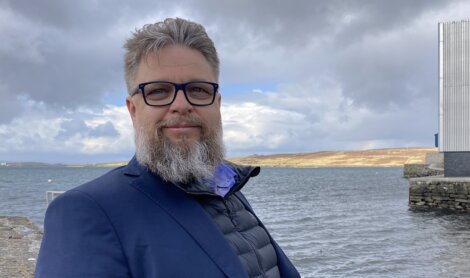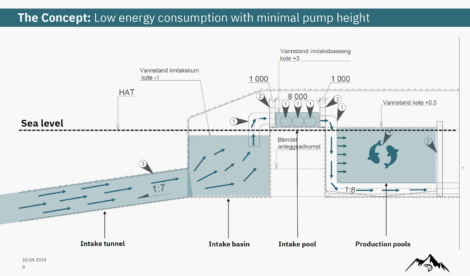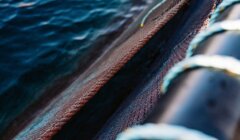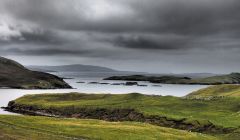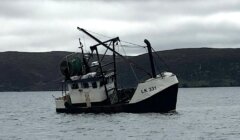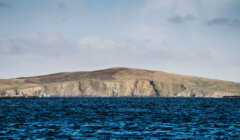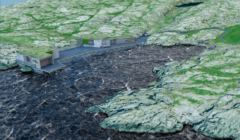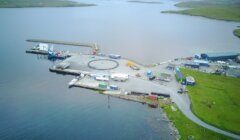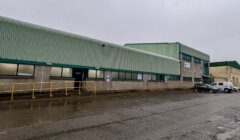Business / Norwegian investors propose large underground salmon farm in the southend
A NORWEGIAN company is looking at a site in the southend of Shetland to construct a large scale underground salmon production venture.
Representatives from Norwegian Mountain Salmon A/S were in Shetland this week for discussions with the landowner and the local authority.
The site at Fora Ness, near Spiggie and opposite the uninhabited island of Colsay, will now be investigated further, according to the company’s chief executive Bård N Hjelmen.
A decision whether to go ahead with the proposal will be made later this year, he told Shetland News.
The company is also looking at a potential site at Mealista near Uig in Lewis (Western Isles) and is planning a first production site on the Norwegian island of Utsira.
The company is proposing to drill large tunnels into the rock to house up to 112 large fish tanks which could, over time, produce up to 45,000 tonnes of salmon per annum.
If this goes ahead, the company said it would invest more than £300 million between the start of construction, envisaged for 2028, and full production by 2035.
“We are now investigating the sites in Lewis and in Shetland, and then we are going to decide which of the two locations we are going to go forward with first,” Hjelmen said.
He said the advantages of land-based salmon production were clear and he was surprised that no-one in Scotland was already doing this.
The company said these advantages include:
- No sea lice
- No fish escapes
- Separate biological zones
- Effective treatment systems
- Advanced monitoring
- Optimal water quality
- 70 per cent sludge filtration
The chief executive added that Scotland had the optimal water temperature profile for land based through-flow salmon farming.
Become a member of Shetland News
With the fish tanks required to be located below seawater level and the water being taken from around 50 metre of depth, the company said it was confident it could produce salmon in the most sustainable way.
Hjelmen added that underground salmon farming would have 90 per cent less visual impact compared to traditional fish farming.
Chief technology officer William Vossgård said the company would like to hear from businesses and private individuals interested in investing in and contributing to the venture.
Asked how drilling large tunnels into the rock could be financially feasible Vossgård said it would be more costly to constantly pumping sea water to a higher up and visible land-based fish farms than blasting tunnels.
“In Norway tunnelling is well known and there is a lot of expertise. Tunnelling is not that big an exercise for Norwegians, and it is less stone to move than excavating the whole site,” he said.
Become a member of Shetland News
Shetland News is asking its many readers to consider paying for membership to get additional features and services: -
- Remove non-local ads;
- Bookmark posts to read later;
- Exclusive curated weekly newsletter;
- Hide membership messages;
- Comments open for discussion.
If you appreciate what we do and feel strongly about impartial local journalism, then please become a member of Shetland News by either making a single payment, or setting up a monthly, quarterly or yearly subscription.
















